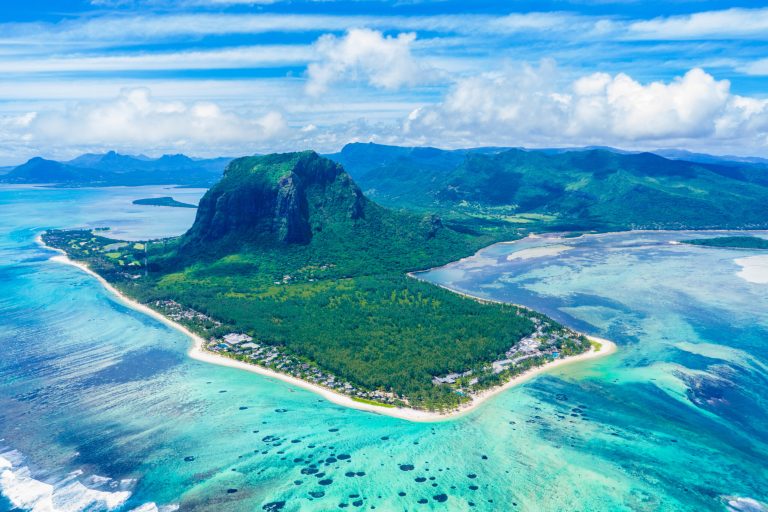In a landmark move after years of diplomatic negotiation, the United Kingdom has announced that it will relinquish sovereignty over the Chagos Islands, a remote yet strategically critical cluster of islands in the Indian Ocean.
The decision, reached in a political agreement between the UK and Mauritius, will resolve a decades-long dispute over the islands, including Diego Garcia, a site of immense military importance used by the United States.
This agreement marks the end of the UK’s long-standing territorial claim to what it had called the British Indian Ocean Territory (BIOT).
The move also reflects broader shifts in international diplomacy, particularly after mounting pressure from the United Nations and African nations, which have consistently called on the UK to return the islands to Mauritius.
“Following two years of negotiation, this is a seminal moment in our relationship and a demonstration of our enduring commitment to the peaceful resolution of disputes and the rule of law,” a joint statement issued by the two countries on Thursday, said:
Negotiations have been conducted in a constructive and respectful manner, as equal sovereign States, on the basis of international law, and with the intention of resolving all outstanding issues between the United Kingdom and Mauritius concerning the Chagos Archipelago, including those relating to its former inhabitants.
As per the official statement, the political agreement is subject to the finalisation of a treaty and supporting legal instruments, which both sides have committed to complete as quickly as possible.
What happens to Diego Garcia?
At the heart of this negotiation is Diego Garcia, the largest and most significant atoll in the Chagos Archipelago.
Since the 1970s, the island has housed a major US military base that plays a pivotal role in global security.
This base allows the US to project power across the Indian Ocean and beyond, providing vital logistical support for navy ships, long-range bombers, and intelligence operations in the region.
Despite Mauritius gaining sovereignty over the Chagos Islands, the military base on Diego Garcia will remain operational under a long-term arrangement.
Both the UK and Mauritius have agreed to ensure the secure and effective functioning of the base, which will continue to be critical for Western strategic interests in the region, especially amid rising geopolitical competition with China and India.
Under the treaty, the UK will exercise sovereign rights over Diego Garcia for an initial period of 99 years, ensuring the continued presence of military operations.
This arrangement ensures that, while sovereignty is transferred to Mauritius, the base’s operations and strategic significance will remain largely unaffected, benefitting both Western powers and regional security.
Economic impacts of the agreement
The agreement between the UK and Mauritius is not just of geopolitical importance but also has significant economic implications.
The treaty includes a substantial financial support package from the UK to Mauritius.
This package will involve an annual indexed payment for the duration of the agreement and the creation of a new infrastructure partnership to support key development projects in Mauritius.
Additionally, the agreement marks a significant step in addressing the historical injustices faced by the Chagossian people, who were forcibly displaced when the islands were militarized.
Mauritius will now be free to implement resettlement programs for the Chagossians on islands other than Diego Garcia.
A new trust fund, capitalized by the UK, will be established to support these resettlement efforts and improve the welfare of the displaced population.
Beyond the resettlement program, the agreement also outlines broader cooperation between the UK and Mauritius on environmental protection, maritime security, and combating illegal fishing in the Chagos Archipelago.
Notably, a Mauritian Marine Protected Area will be established, protecting one of the world’s most biodiverse marine environments.
Historical context and diplomatic shift
The Chagos Islands dispute has its roots in the decolonization process of the 1960s.
When Mauritius gained independence from the UK in 1968, it was forced to cede the Chagos Archipelago to Britain.
Shortly thereafter, the UK leased Diego Garcia to the United States for military purposes, displacing over 1,000 Chagossians in the process.
The forced eviction of the islanders has been a source of ongoing resentment, with many Chagossians repeatedly taking the British government to court.
For decades, the UK maintained its claim to the islands, despite growing international criticism.
In recent years, the International Court of Justice and the United Nations General Assembly have overwhelmingly ruled in favor of Mauritius, urging the UK to surrender its last remaining African colony.
The changing international political landscape also played a key role in the UK’s decision to settle the dispute.
African nations began to unite around Mauritius’ claim, increasing pressure on the UK in global forums.
Moreover, post-Brexit, the UK found itself diplomatically isolated on this issue, with even European allies less willing to support its position.
The timing of the agreement also reflects the UK’s broader desire to win favor with African nations, particularly in light of shifting global dynamics, including the war in Ukraine and the potential for a second Trump presidency in the US.
The post UK’s landmark handover of Chagos Islands to Mauritius: what’s at stake? appeared first on Invezz

